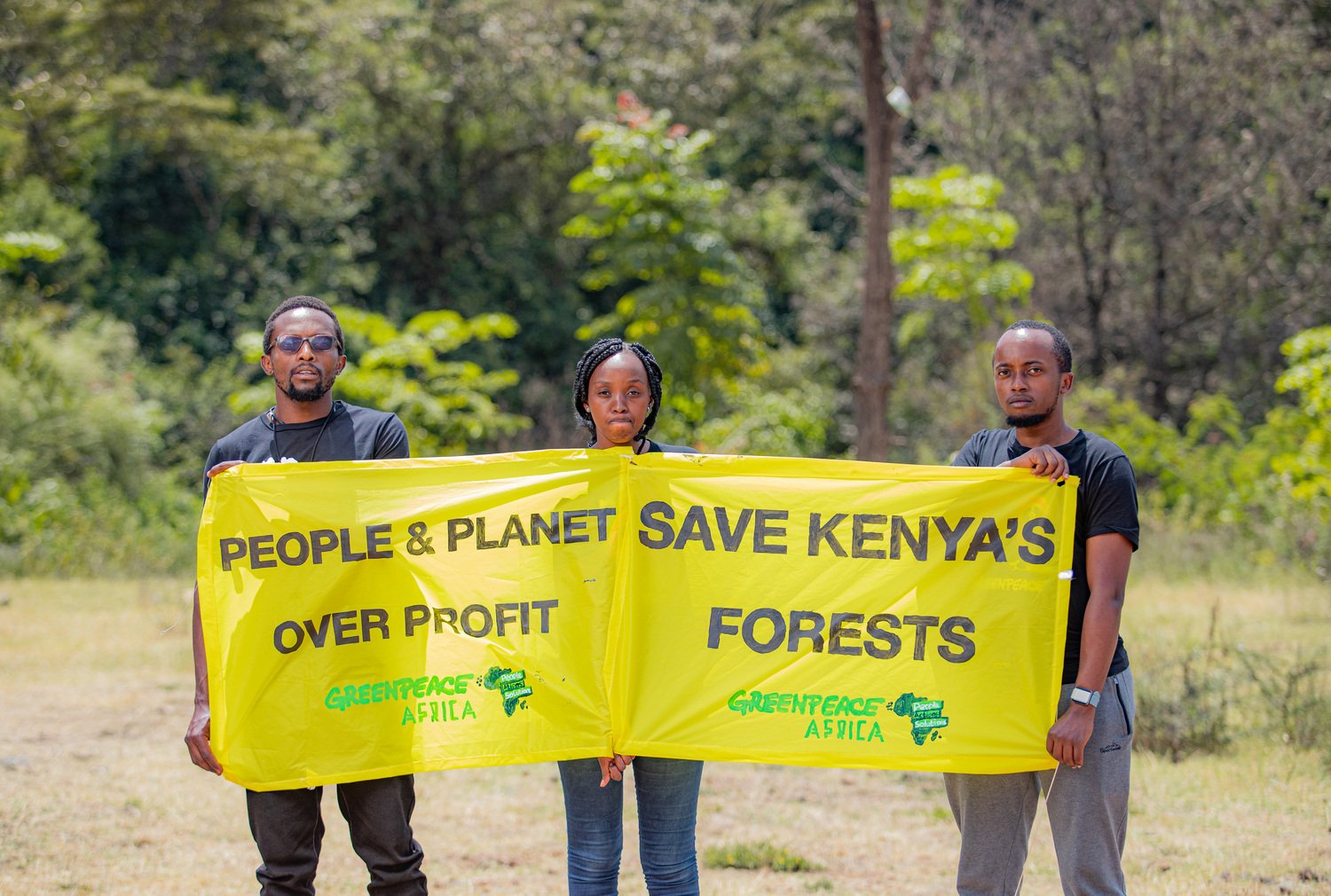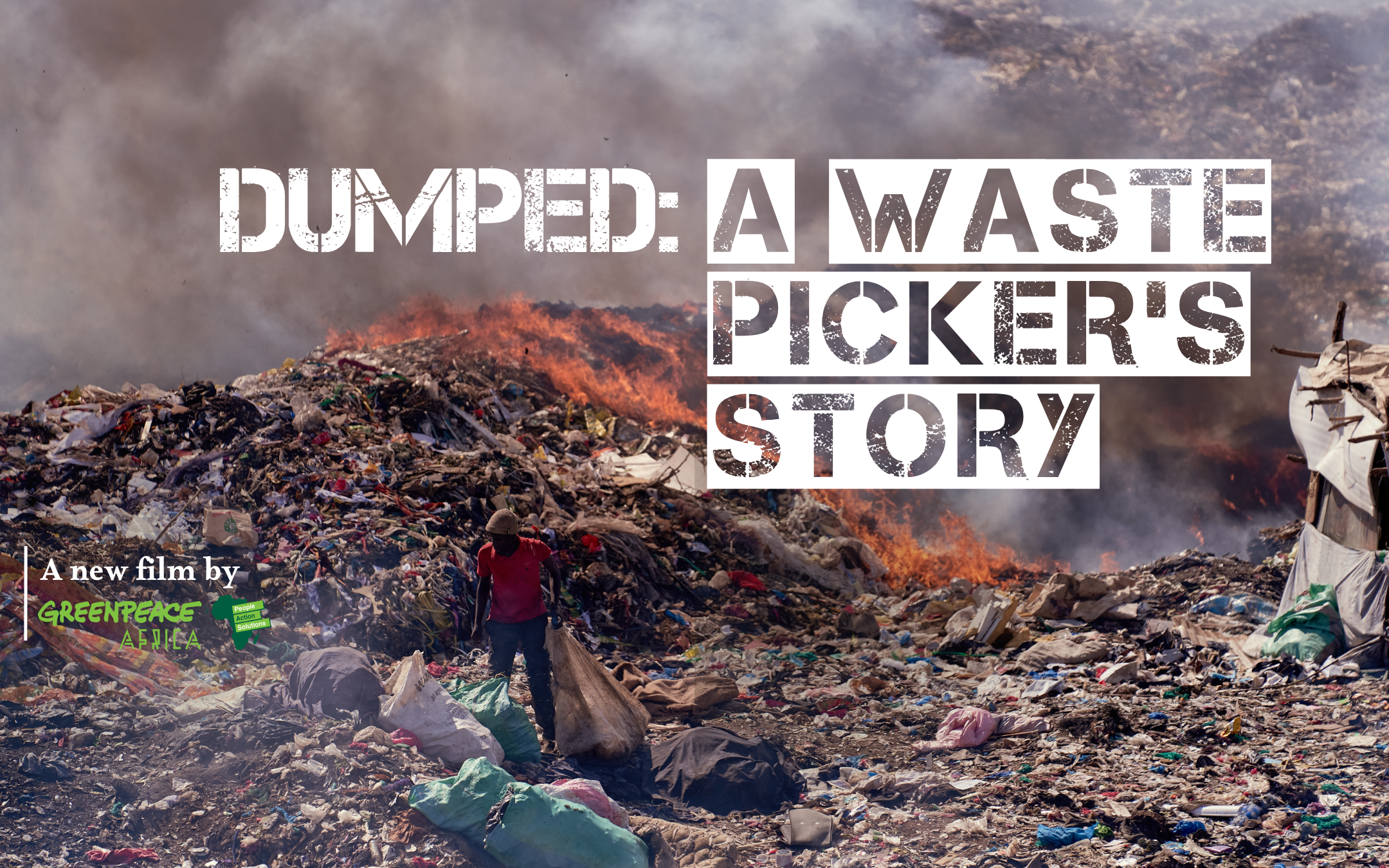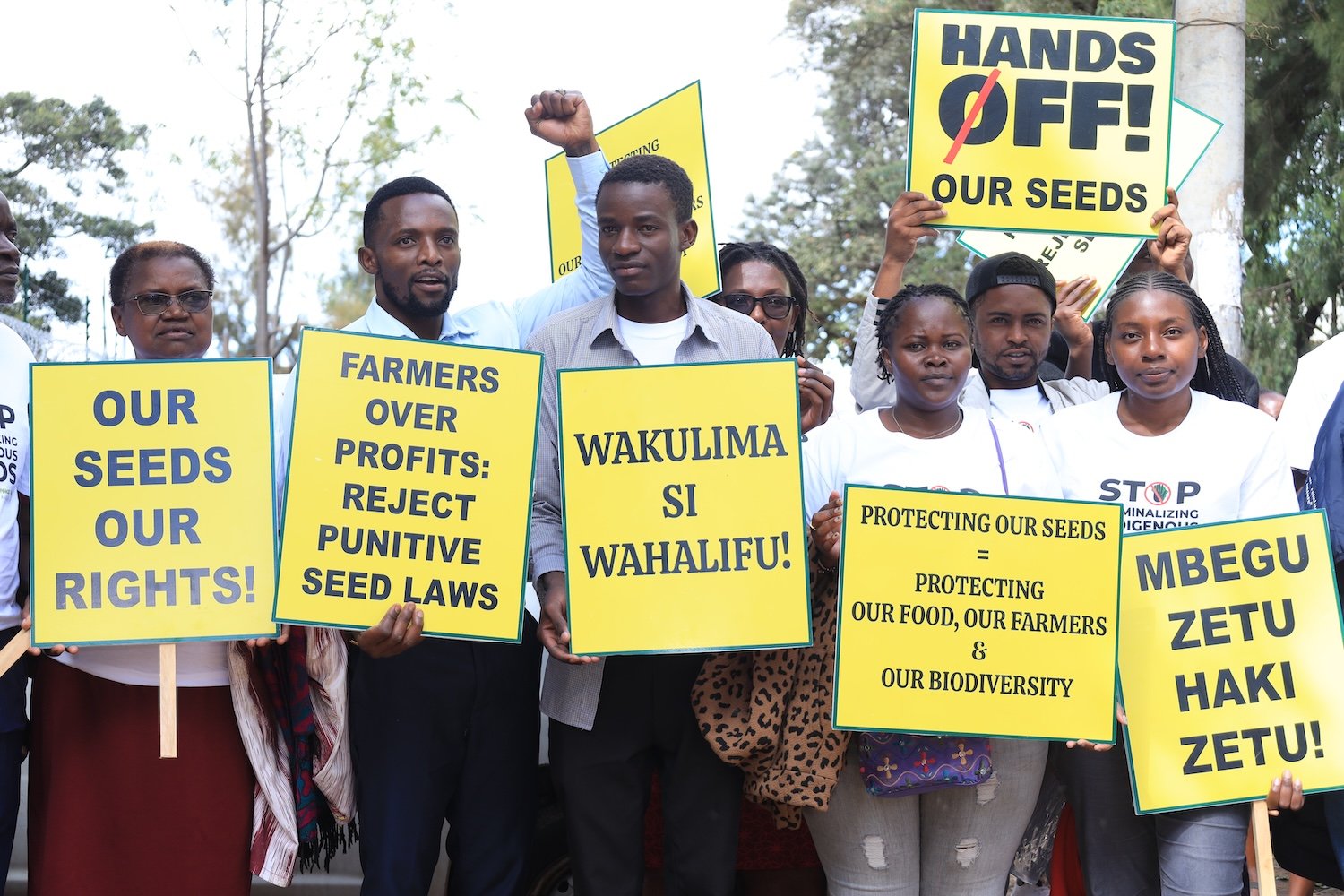Makueni, 16th October 2019 – Activists from Greenpeace Africa and Smallholder farmers from Makueni county brought the world food day celebrations to a stand still when they delivered a statement to Principal Secretary (PS), Ministry of Agriculture, Prof. Hamadi Boga, demanding for a ban on all harmful active ingredients found in pesticides sold in the Kenyan agriculture market. Professor Boga was representing Cabinet Secretary, Ministry of Agriculture, Honourable Mwangi Kiunjuri at the celebrations.
The activists unfurled a banner with the message ‘CS Kiunjuri, Ban Harmful Chemicals in Our Food’ and read a statement of demands to the CS. This happened at the World Food Day (WFD) celebrations held at the Agriculture Training Centre Kwa Kathoka in Makueni County. This year WFD was commemorated under the theme Healthy Diets for a #ZeroHunger World.
“Kenya’s food system is broken and food safety has become a major concern to consumers. In the past year we have seen an immense violation of Kenya’s right to safe food. Kenyans have been exposed to food with harmful chemicals. Kenya’s food system has become vulnerable to unscrupulous businessmen seeking to profit at the expense of consumers’ health,” said Greenpeace Africa’s Food Campaigner, Claire Nasike.
Agrochemicals are toxic by design. Research and studies have proven that exposure to these chemicals negatively affects human health.
The use of pesticides allows toxic chemicals to stay in the environment for decades. This pose a threat to the entire ecological system upon which food production depends on. According to a report by the Route to Food Initiative titled Pesticides in Kenya: Why Our Health, Environment and Food Security are at Stake, the use of pesticides results in contamination of soil and water sources, causing loss of biodiversity thus reducing the nutritional value of food.
“Agrochemicals are harming the soils in our farms and ultimately the quality of the yields. If the government can provide water, indigenous seeds, good extension services and access to market, we will be able to feed the country and contribute immensely to food security as outlined in the Big Four Agenda,” said Rebecca Mukeku, a farmer from Makueni County.
Agricultural productivity in Kenya is generally constrained by a number of factors – among them, lack of water, poor post harvest handling facilities and seeds. Limited extension services and lack of markets are other challenges.
“The government needs to support sustainable farming practices such as ecological farming. Such efforts will increase farmers’ income, build resilience and empower local farmers to produce adequate food. This will break the cycle of dependency on large quantities of chemical fertilisers and pesticides and address the multiple challenges facing small-scale producers,”continued Nasike.
“CS Mwangi Kiunjuri must act now. It is critical that the Ministry of Agriculture ensures that consumers have access to safe and healthy food by empowering the local food industry to produce food in a safe and sustainable manner,” concluded Nasike, Greenpeace Africa Food campaigner.
Notes to the Editor:
-
Statement to the CS Ministry of Agriculture can be found here
-
World Food Day is celebrated in over 150 countries across the world, making it one of the most celebrated days of the UN calendar. The different events worldwide creates awareness and action for those who suffer from hunger and for the need to ensure food security and nutritious diets for all. The focus of the day is that food is a basic and fundamental human right.
Media Contacts:
Hellen Dena, Communication Officer, [email protected] Mobile: + 254 717 104 144




Discussion
Great initiative lads! I believe to achieve equity in the broken food system, systems to identify food sources from field to fork will be essential. This also improves on consumer safety concerns while help reward sustainable techniques in food production. Blockchain technology in agricultural value chains can achieve this! imagine championing for supermarkets to make their grocery suppliers to adopt this technology. Consumer empowerment/ safety will be enhanced, food wastage reduced and equity to smallholder farmers practicing sustainable agriculture achieved.